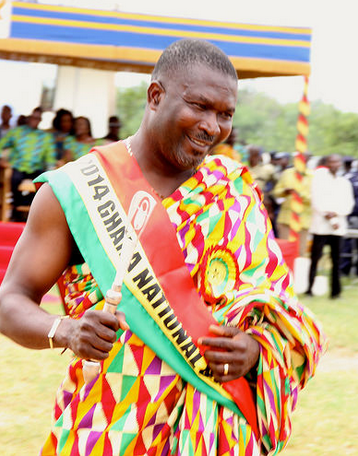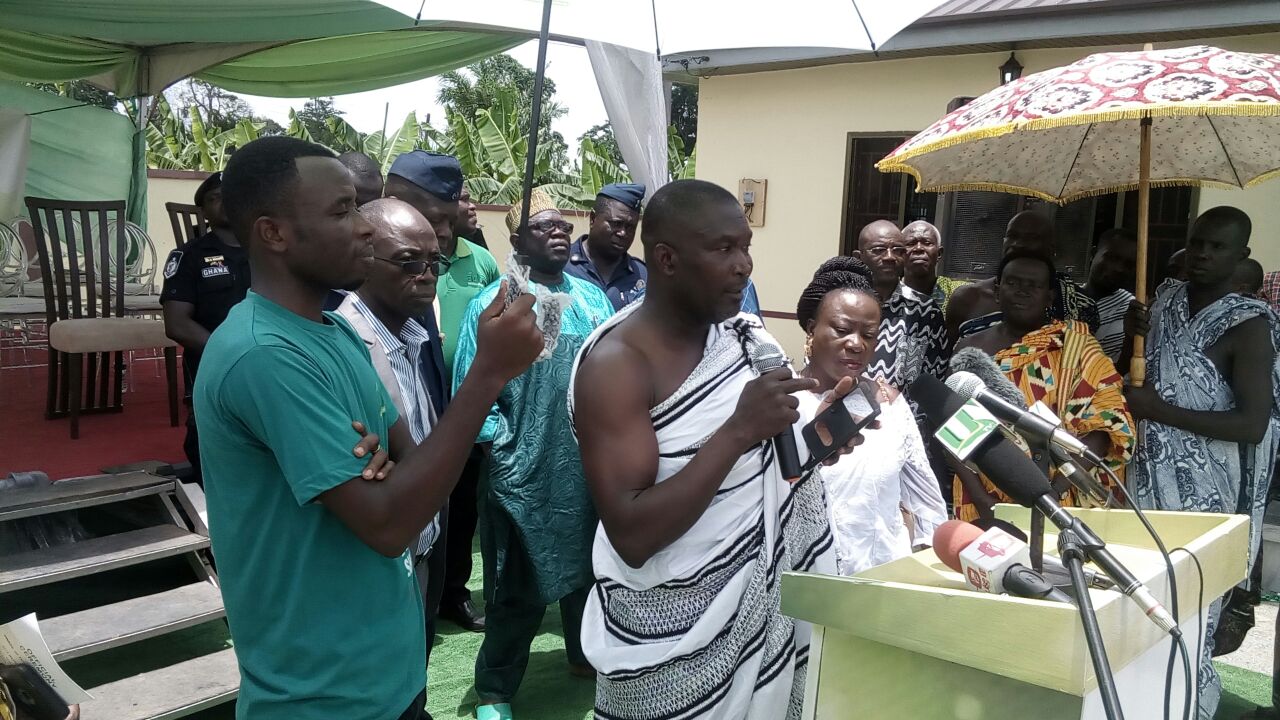
George Asamoah Amankwah was born at Manso Atwedie, married and blessed with three children. At the age of 12, he started helping his father in farm activities at Manso Nkwanta, the capital of the Amansie West District of Ashanti.
In 1981, he planned traveling to Lagos, Nigeria for better economic prospects as Ghana experienced challenges at the time. As he could not raise the capital needed to travel, he decided to farm cassava and groundnuts together with taking care of his father’s farm to raise the funds needed.
After a year of farming, he was able to raise the cost of transportation to Lagos, where he spent six months (July 1982 to January 1983).On his return, he set out to undertake farming—planting cassava, okra and groundnuts. He however returned to Lagos in 1985, where he met a Ghanaian mechanic who took him in and underwent training for four years. After five years sojourn in Nigeria, George returned to Ghana in 1990 to open a small-size auto mechanic garage at Suame Magazine, Kumasi. Following seven years work as a mechanic, he decided to go back into farming to pursue a dream of becoming an agric-industrialist. This time, he ventured into mixed cropping and agro-forestry with teak trees as his major focus.
His vision was to put hundreds of acres of land under economic tree cultivation to serve as collateral to raise the needed capital to add value to his agricultural produce through

processing — a dream he says is near achievement with 720 acres of teak plantation under cultivativation. His vision was to put hundreds of acres of land under economic tree cultivation to serve as collateral to raise the needed capital to add value to his agricultural produce through processing — a dream he says is near achievement with 720 acres of teak plantation under cultivation. In 1999, George was awarded the Best Agro Farmer in the Atwima Bosomtwe Kwanwoma District, giving him the zeal to put more efforts into commercial farming.
In 2002, he applied for government degraded forest reserve lands and two compartments were approved and allotted to him. Using the land effectively for four years, he won the 2006 Tano South District overall Best Farmer and a year after; he won the Brong Ahafo Regional Best cassava farmer. Further, he won the silver award for national best agro farmer from the Ministry of Trade and Industry in December, 2010.
Having achieved such feat, he decided to work towards the National Best Farmer Award with a focus on his vision of becoming an agricultural industrialist. In 2010, he contested for the national award but did not win. This did not deter him as he continued working hard and invested in technical services, research and innovation as well as working closely with agricultural extension officers in the Tano South District to enhance farm operations and also meet the criteria for the award.
In December 5, 2014 at Sehwi Wiawso, George was awarded the National Best Farmer much to his delight after 17 continuous years of farming with a clear vision in mind. His award winning farms consist of 720 acres of agro forestry farm, 210 acres of maize, 100 acres of plantation intercropping, 42 acres of cocoa, 25 acres of cassava, 20 acres of pepper and okra, 20 acres of palm trees, 25,000 mounds of yams, 10 acres of rice, 5 acres of cowpea, 5 acres of beans, 1 acre of pawpaw, 500 local birds, 400 snails, 47 cattle, 300 sheep, 70 ducks, 10 turkeys, and three natural ponds of catfish and tilapia (875 tilapia and catfish in each pond).
The farms, currently located in the Atwima Bosomtwe Kwanwoma and Tano South Districts of the Ashanti and Brong Ahafo Regions employs 70 permanent staff and 50 casual workers. George is also the Chief Executive Officer-CEO of Europe Autoland Limited-Europal with interest in agri-business, auto-parts, sanitation, and construction, headquartered in Kumasi.
He is also the Founder and President of the Suame Magazine Industrial Development Organization-SMIDO, a development organization committed to harnessing technology and enhanced business practices to improve livelihoods and socio-economic growth.
He advises budding and prospective farmers to take farming as a business and so should employ all the relevant practices including working closely with extension officers to ensure they gain from their investments.
He adds that the time has come for farming to be seen as a business and not a hobby or subsistence activity. George as the Vice President of the Private Afforestation Developers Organization-PADO is leading efforts at partnering with government to reverse the declining trend in forest degradation and its attendant challenges.
George enjoys regular exercises, traveling and spends lots of time with the family outside of work.